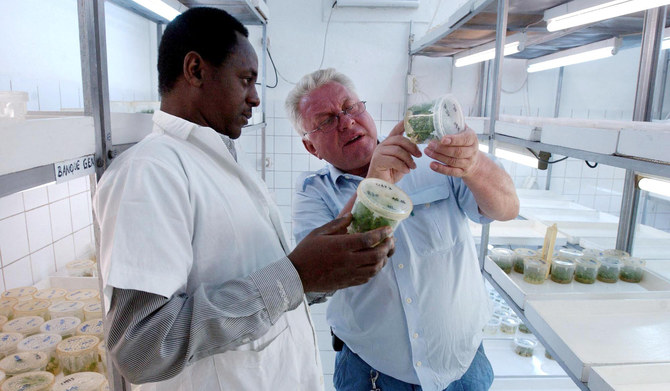
In a world marked by significant and tremendous advancements in both medical science and technology, it is unfortunate and disheartening to witness the persistence of easily preventable and treatable illnesses, which continue to claim the lives of millions of people around the world each year.
It is estimated that about 10 million people tragically lose their lives every year to easily preventable and treatable illnesses. This must be treated as a global health issue. In addition, it is important to point out that the burden is often disproportionately borne by low-income countries and particularly their children.
While the impact of easily preventable and treatable illnesses varies across regions, a significant number of these preventable deaths occur in sub-Saharan Africa and South Asia. Some of the countries with high mortality rates due to easily preventable and treatable illnesses are Nigeria, the Democratic Republic of the Congo, Mozambique, Burkina Faso, Mali and Afghanistan.
In spite of the availability of knowledge, resources and effective interventions, these diseases unfortunately persist. Several illnesses fall into the category of easily preventable and treatable conditions that contribute significantly to global mortality. Among these diseases are malaria, a mosquito-borne infectious disease that remains one of the world’s leading causes of death, particularly in sub-Saharan Africa. It is worth noting that simple preventive measures, such as bed nets treated with insecticides and anti-malarial medications, can substantially reduce the incidence and impact of this disease.
Other easily preventable and treatable diseases include cholera and rotavirus-induced diarrhea, which claim many lives, primarily in developing regions that have limited access to clean water and sanitation facilities. This can be partially addressed by improving hygiene, access to clean water and promoting safe water practices.
Some other easily preventable and treatable illnesses include respiratory infections such as pneumonia, which poses a significant threat, especially to children and the elderly. Vaccination campaigns, adequate nutrition and prompt access to healthcare can markedly reduce mortality rates associated with respiratory illnesses. Finally, tuberculosis remains a major global health concern, affecting millions annually. Timely diagnosis, effective treatment and preventive measures such as the bacillus Calmette-Guerin vaccine can help control the spread of TB and save lives.
In order to comprehensively and more efficiently address the global health issue of easily preventable and treatable illnesses, we ought to first look at the main reasons behind it. Low-income countries often face these challenges because of insufficient healthcare infrastructure, inadequate access to healthcare facilities, limited access to vaccinations and an inadequate supply of trained medical professionals, as well as essential medications. Such a lack of access can lead to delayed or insufficient treatment for preventable illnesses.
The high number of deaths caused by these illnesses is a stark reminder of the gaps in global healthcare.
Dr. Majid Rafizadeh
Resolving this issue requires a concerted effort from governments, healthcare facilities and international organizations to enhance the healthcare infrastructure in poor countries. It is also necessary to address the underlying social and economic determinants of health and improve maternal and child health in low-income nations. Comprehensive education, widespread testing and accessible healthcare services are critical in addressing this global health challenge.
In other words, addressing these easily preventable and treatable illnesses requires a multilateral approach that involves governments, healthcare professionals and nongovernmental organizations.
In addition, such a multifaceted approach will require comprehensive public health education programs to raise awareness about these illnesses’ causes, symptoms and prevention strategies, including emphasizing the importance of vaccination, proper hygiene and early medical intervention. It will also be reliant on organized efforts to provide affordable medications and treatments, strengthen international, regional and national collaboration and partnerships, support and boost vaccination programs and invest in healthcare infrastructure.
It is a step in the right direction that the UN has set a goal to address this issue. Sustainable Development Goal 3.2 aims to “end preventable deaths of newborns and children under five years of age” by 2030. This objective is part of the broader UN SDGs, which were adopted by all member states in 2015 as a universal call to action to end poverty, protect the planet and ensure that all people enjoy peace and prosperity. Specifically, target 3.2 is stated as: “By 2030, end preventable deaths of newborns and children under five years of age, with all countries aiming to reduce neonatal mortality to at least as low as 12 per 1,000 live births and under-five mortality to at least as low as 25 per 1,000 live births.”
Finally, it is important to point out that the continuing high number of deaths caused by easily preventable and treatable illnesses is a stark reminder of the gaps in global healthcare. By prioritizing education, access to healthcare and international collaboration, we can work toward a world where these diseases no longer pose a threat.
In a nutshell, every year, we unfortunately witness the tragic loss of 10 million lives to easily preventable and treatable illnesses. Collective efforts by governments, healthcare professionals and communities are essential to address this silent epidemic and ensure a healthier, more resilient global population. It is our collective responsibility to advocate for accessible healthcare for everyone, raise awareness and promote preventive measures and work toward eliminating these unnecessary deaths. Through education, awareness and global collaboration, we can indeed turn the tide against this silent epidemic and save countless lives.
• Dr. Majid Rafizadeh is a Harvard-educated Iranian-American political scientist. X: @Dr_Rafizadeh












